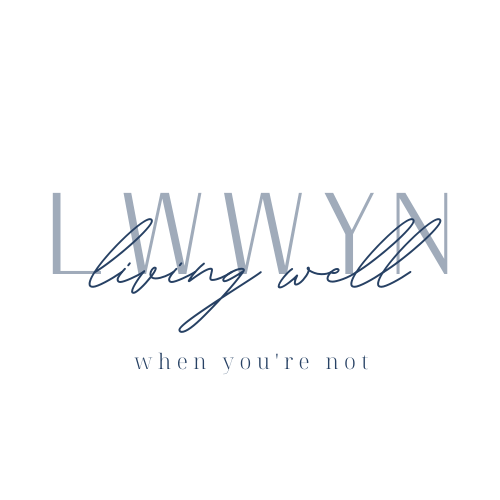The Cure for Wellness: Coming Home to Ourselves
At the end of each year, the Western world is Januaried. The Wellness industry makes the most of our human tendency to believe in new beginnings and starts its full-on blitz in the waning months of each year. We are bombarded with ads that promise a better, healthier life. We often use important dates such as January 1 as dividing lines between our past or present selves and our future selves. It gives us a specific time to stop procrastinating and to work on bettering ourselves and our health.
Wellness is defined by the Global Wellness Institute as the active pursuit of activities, choices, and lifestyles that lead to a state of holistic health. The Global Wellness industry is valued at about $4.5 trillion and growing, so it’s clear that lots of us want to be well. In January, new diets are started, gym memberships skyrocket, and meditation and Wellness apps are dutifully downloaded – all with the promise of creating a new you. Who doesn’t want to be free from disease, attain the perfect weight, have the energy of a three-year-old on a sugar high, age at a glacial pace, and remain peaceful and calm no matter what? You just have to follow the prescription laid out by Wellness experts, and your new life is there for the taking. Those of us with chronic illnesses can be particularly vulnerable to claims of you’ll be well if you . . . But what happens when we try to “fix” ourselves physically or emotionally by following strict diets, counting every rep in our exercise routines, and faithfully meditating only to remain sick or miss work? Or worse yet, what if we don’t stick to a program all of the time?
Don’t get me wrong, many of the practices recommended by Wellness gurus can have a positive impact on our overall health, but sometimes in our desperation to get well or create minds and bodies that aren’t broken, we stick to these rules at the expense of our true selves and get caught up in the pursuit of control. Wellness practices started with good intentions, but some have evolved into moral imperatives that reduce our worth to how well we adhere to the tenets of the Wellness World. While healthy practices can improve our lives, any regiment or routine that contracts our lives to the point we can no longer think about anything except ourselves and our health, is in fact, unhealthy. For me, the constant monitoring of my thoughts and behaviors in an attempt to get well, or at least better, coupled with remembering to take my medicine five times a day, makes me feel like a patient all of the time. There’s no room to just be me and rest in what is. My body stops being my home and becomes just a house in need of repairs, and I become homesick. Home is more than a building. It’s memories, hopes, laughter, tears, the well-worn robe waiting for me at the end of a long day, the faint smell of my dogs, my desk piled with work and bills, pictures of beloved people and pets, paintings that I love, and the flowers outside of my window. Our whole beings are mysterious and magical and beyond any physical limitations. So, I take care of my mind and body, but not to the exclusion of my whole self.
We need unscripted time to know ourselves and connect with others beyond the narrow guidelines of our Wellness plans. This space allows nuanced thinking and spontaneity to develop. I'm not suggesting that you delete your Calm App or get in your car and head to the nearest fast-food restaurant, (okay, maybe if it’s a really bad day). I admit that I have grown to love my morning smoothies, my prayer and meditation time, and I can whip up amazing gluten-free recipes. (I actually do have an immune response to gluten.) When we live with chronic illness, we sometimes careen headlong into the next fix without assessing its sustainability and how it fits into our lives. These prescriptive practices can be a trap door into shame and self-blame if we aren't cured, especially if we have strayed from the plan. The If Only tape in our heads tells us If only I was better at staying focused during meditation, If only I hadn’t eaten that, If only I had exercised five times a week instead of three. The pervasiveness of the culture of Wellness has also led to judgments from others about our commitment to getting well. The constant advice shared by the chronically healthy, like You should try yoga, or Have you tried this supplement, I’ve heard it works wonders, is another way of saying You’re just not trying hard enough, or you wouldn’t be sick.
By rigidly following a program designed for the masses, we can inadvertently double down on fears and self-doubt that already exist because of our illnesses. We wonder if our loved ones are sick and tired of us being sick and tired. We don’t accept ourselves with our limitations because others tell us what we should be doing to improve our health. We chase external validation by doing it right so we can tell ourselves that being sick is not our fault. When we choose which practices work for us and don’t view them as keys to the kingdom, we begin to regain our ability to suck the marrow out of life and reject the certainty and control marketed by the Wellness industry. Those healthy practices enhance our lives but shouldn’t distort our views of ourselves or rob us of some of the simple pleasures in life. The difference between curing and healing lies in our acceptance of ourselves. Come home to yourself and live well even if you’re not.

